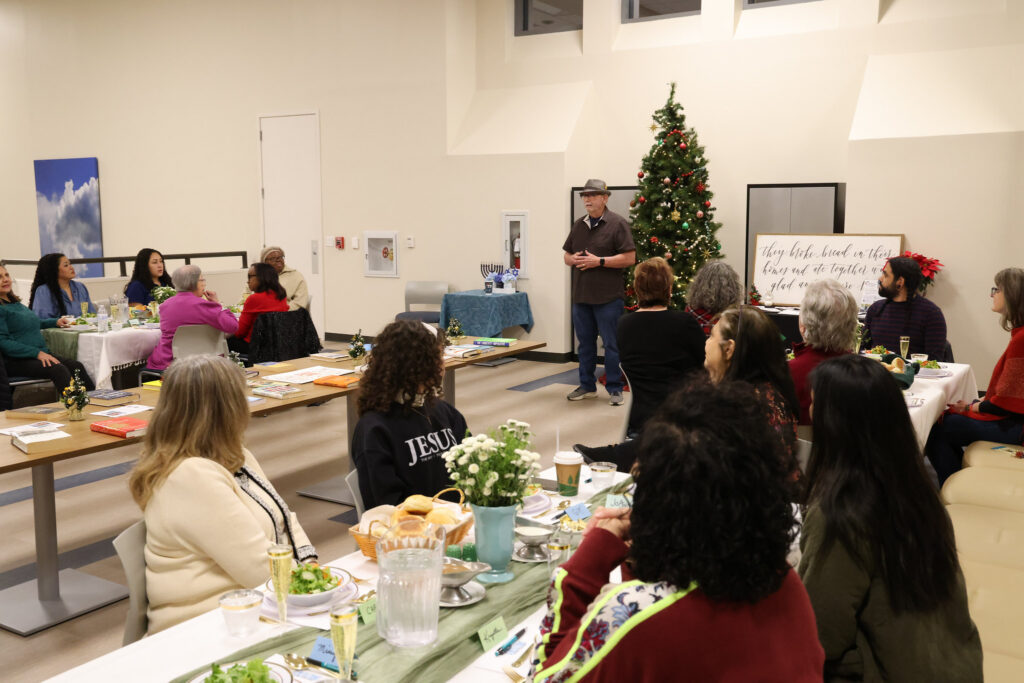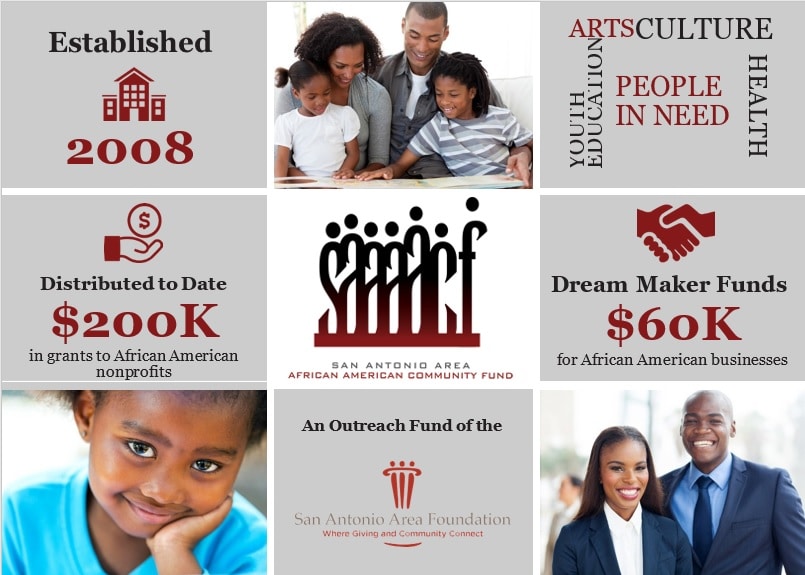
As the country embarked on renewed racial reckoning ushered by the horrendous murder of George Floyd in Minneapolis in May 2020, the reverberations of growing social unrest were soon felt here in San Antonio.
The community was in search of guidance. People needed and wanted to turn to bona fide sources of leadership that could point the way on how to tackle racial injustice and work toward establishing equity.
Then the mentions began dropping one after the other – News 4 WOAI, San Antonio Magazine locally and even in national nonprofit circles labeling it as a go-to organization in the Alamo City.
They all referred to the San Antonio Area African American Community Fund (SAAAACF), a charitable fund of the San Antonio Area Foundation.
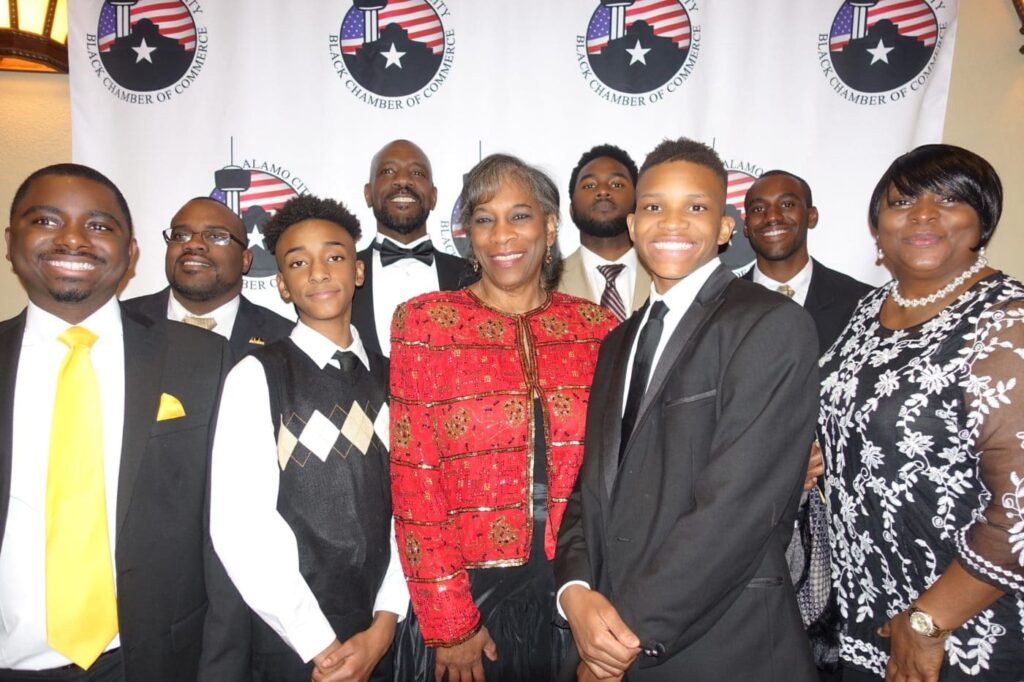
Yet it’s not as if SAAAACF was just created. In fact, it has rather quietly yet effectively advocated for the Alamo City’s Black community for more than a decade.
If it hasn’t been well known beyond local African American circles, that is certainly changing these days of ongoing racial strife and widespread demands for justice.
That suits SAAAACF leadership just fine. In fact, they say, it’s a higher-profile role they’re ready to take on.
“We want to be a major player,” said Bobby Blount, Chairman of the SAAAACF Board of Directors and a figure in the local educational scene, serving on the Board of Trustees of the Northside Independent School District.
“People started looking around to see which organizations were willing to step up and we quickly realized that we needed to be more engaged, providing more leadership in the community,” Blount added.
Quietly Effective
Many would argue that, indeed, now is the time for SAAAACF to shine like never before – it has already proven to be an important and successful tool for the advancement of San Antonio’s Black community.
It was originally formed in 2008 as an Area Foundation charitable fund within the Development and Donor Services Department. With this support, SAAAACF leadership has been able to establish itself as a philanthropic force for African American nonprofit organizations and business owners.
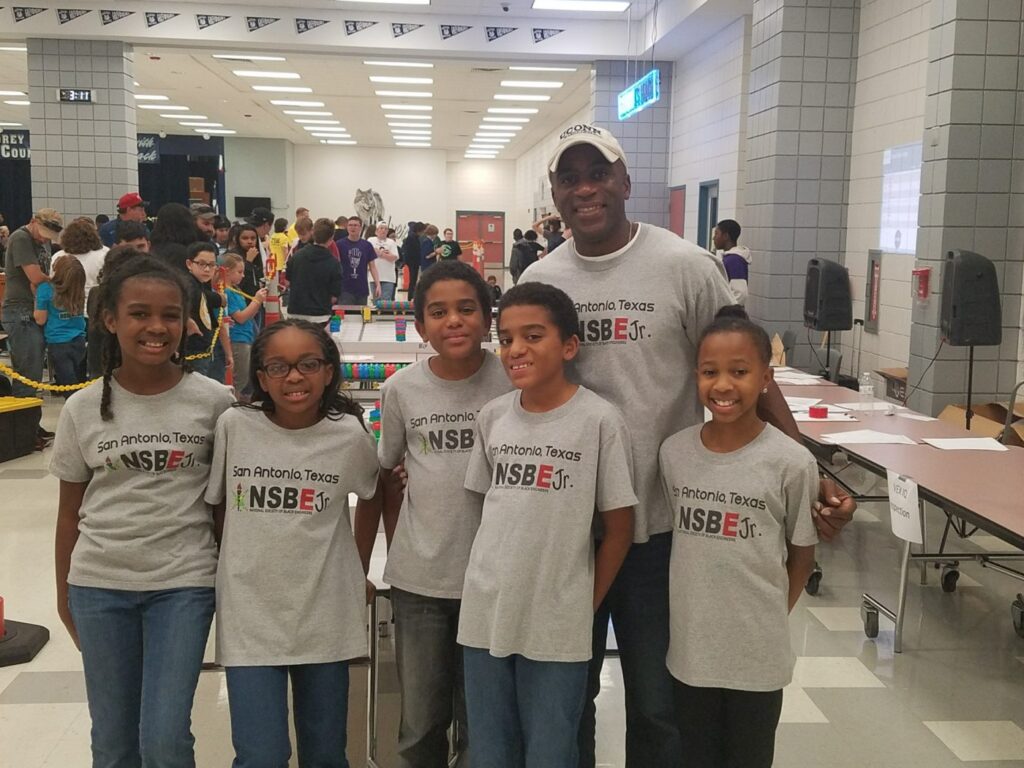
Much like the Area Foundation, SAAAACF organizes and administers its own grantmaking process, focusing on major impact areas: arts/culture, education, health and people in need. Since 2010, the fund has awarded approximately $230,000 to Black-led nonprofits.
One example is Beyond the Light Outreach Project, which started as a small food bank operation in San Antonio’s East Side. A $1,000 grant from SAAAACF automatically doubled the fledgling nonprofit’s initial budget and it has since obtained funding from other sources as well, allowing it to gradually grow into a wider-scope social service operation.
Growing and enhancing Black entrepreneurship has also been a staple of SAAAACF’s portfolio. Teaming up with microlender LiftFund led to the creation of the Dream Makers’ Fund, empowering aspiring business owners like David O’Neal, the program’s first loan recipient. He had worked as a janitor for more than five years but, thanks to the new program, he was able to break out on his own by starting a new business, Helping Hands Service Solutions.
“I plant to excel,” O’Neal said. “My goal is to be the number one cleaning service in the region.”
Community involvement for SAAAACF has stretched beyond giving programs, hosting the “Rising Pros” networking and mentoring program for local young African American professionals.
There’s also a major ongoing research project in partnership with the Area Foundation, CI:Now and other community groups with the objective of unveiling a data-driven snapshot of the current state of San Antonio’s Black community.
Unmet Needs
Beyond SAAAACF’s traditional bread-and-butter philanthropic work, the country’s ongoing racial reckoning has put the fund in the local spotlight as a community leader.
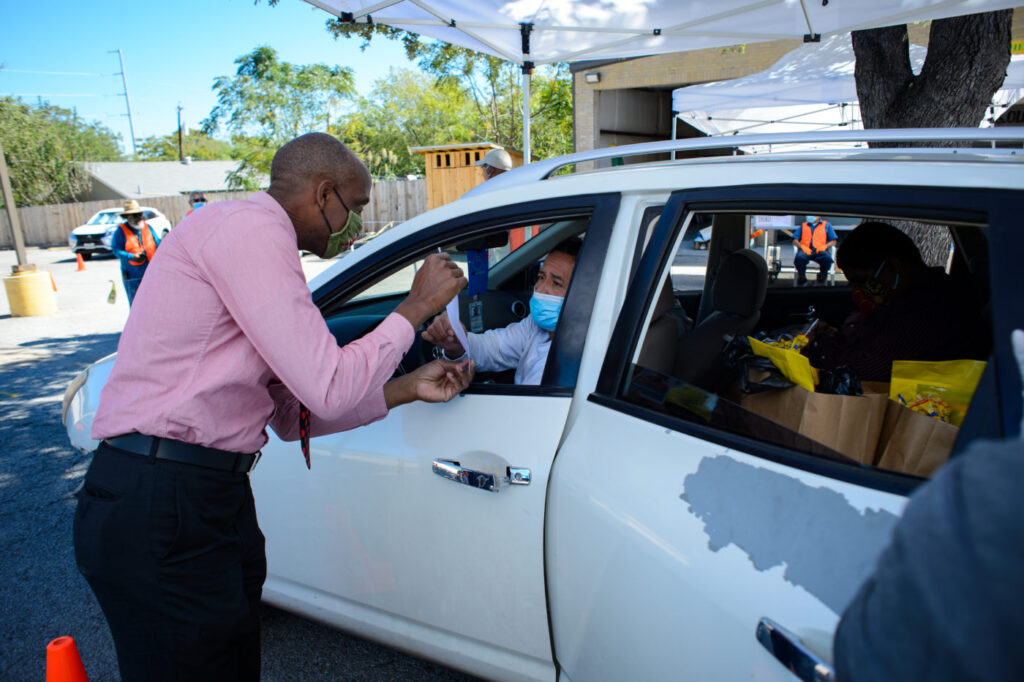
Perhaps no other new initiative shows SAAAACF’s expansion into activism than the formation of its Social Justice Fund.
SAAAACF’s board of directors took a look at community needs and concluded there wasn’t a concerted effort to address issues such as criminal justice reform and civil rights violations – so they took it upon themselves to do something about it.
“The Fund is trying to fill unfulfilled needs in our community, particularly in the social justice area,” explained Paul Fletcher, a real estate lawyer and SAAAACF board member.
A fairly new transplant to the Alamo City, Cara Wright also saw those needs not long after moving here.
It’s a known fact that San Antonio is the most segregated large city in the country, something that hit home with Wright – she felt compelled to act.
She found a close partner in SAAAACF, where she and husband Brian founded the Social Justice Fund with the primary mission of providing free legal services for matters involving bail issues, law enforcement excessive use of force, racial discrimination and voting rights.
San Antonio may not have extreme racial tensions leading to conflict and violence seen in other large urban areas across the country, but it doesn’t mean that there’s no discrimination and racism here.
“There have definitely been cases of African-American arrests that have made national news,” said Cara Wright. “Bottom line, there are systemic issues here as in other places that have not been resolved.”
Time is Now
San Antonio Area Foundation leadership couldn’t agree more with Wright – racism still rears its ugly head and there are many reminders that we still have a long way to go toward a just and equal community.
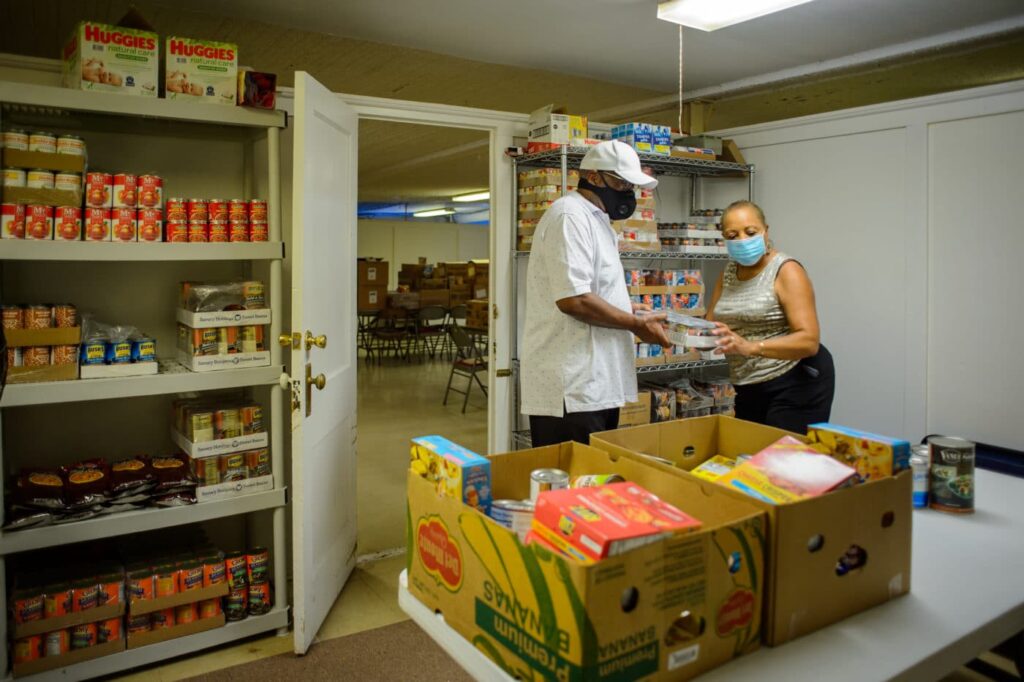
That’s why the Area Foundation, much like SAAAACF, has also ventured this year into somewhat new territory in assuming a higher-profile leadership role in the community on race and equity.
The agency took a strong stance in June through an official joint statement from CEO Marjie French and former Chairman of the Board of Directors, Theodore “Theo” Guidry II.
“We stand with our community, especially the African American community, in declaring that we must work harder for justice, decrying systemic racism in policing and society, to ensure that the promise of our beautiful American Dream is accessible to all,” Guidry and French wrote.
Recognizing change must come first from the inside, the Area Foundation created an internal racial equity committee including representatives from all agency departments. The committee held a series of discussions and drafted an action plan.
The committee’s work revealed that the Area Foundation has already been engaging in many positive practices advocating for racial justice and equity – but the work is far from done.
“I’m proud of us for taking this on, not being afraid of asking the hard questions,” shared Dorian Williams, a facilitator with the Area Foundation’s Learning and Development team who led committee meetings. “But we don’t want this to be a knee-jerk effort that doesn’t last long – it has to be sustainable and become part of our culture.”
There seems to be strong synergy between the work of the Area Foundation’s racial equity committee and what SAAAACF is seeking to accomplish.
It’s all about helping lead systemic, deep-rooted change toward a truly equitable San Antonio community.
Blount, SAAAACF board chairman, said his organization is ready to help lead the way in taking on such a formidable challenge.
“Previously, we probably would’ve said all this is outside our space and perhaps supported another organization to step up,” he said. ‘Now we’re realizing that we have to take it on ourselves. If we’re going to make any difference, our window of opportunity is now.”
Learn more about the San Antonio African American Community Fund here.

